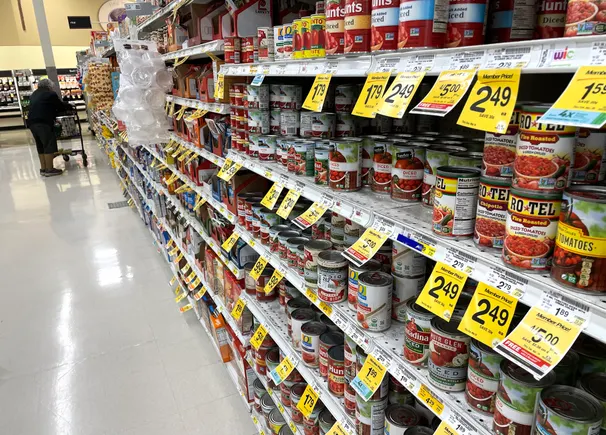Sen. Maggie Hassan has recently reached out to major retailers including Albertsons, Kroger, Walmart, Costco, and Dollar General to gather information on how the increased tariffs imposed by the Trump administration on imported steel and aluminum could impact stores, suppliers, and costs within the grocery supply chain.
In letters dated June 18, Senator Hassan requested detailed information from the CEOs of these retail giants regarding their expectations of how the tariffs, which recently doubled to 50% on June 4, will affect the cost of private label products, specifically focusing on canned foods and frozen meals.
As the ranking member of Congress’ Joint Economic Committee, Senator Hassan and her Democratic colleagues are particularly interested in understanding how the rising metal prices could influence the costs of canned goods. She has asked the retailers to provide data on their costs, revenue, and profit margins for their top-selling canned food and aluminum foil products over the past five quarters.
Furthermore, Senator Hassan has requested insights into how customers who receive Supplemental Nutrition Assistance Program (SNAP) benefits shop for canned goods, including a breakdown of their purchases between brand name and private label products. She also seeks an estimate of the number of jobs supported by the retailers in industries like construction, food packaging, and food processing.
Highlighting the potential impact of tariffs on grocery prices, Senator Hassan referenced data from the Consumer Brands Association, indicating that the 50% tariff on imported steel could lead to a price increase of between 9% and 15% for canned foods. She also pointed out that the U.S. imports nearly 70% of the steel used for canned fruits and vegetables.
Retailers have been given until July 9 to provide the requested information to Senator Hassan. This move comes as grocery prices saw a 2.2% annual increase in May according to the Bureau of Labor Statistics, following a 2% rise in April and a 2.4% increase in March for food-at-home inflation.
In conclusion, Senator Hassan’s inquiry sheds light on the potential ramifications of increased tariffs on the grocery supply chain, emphasizing the importance of understanding and mitigating any adverse effects on consumers, retailers, and suppliers.


